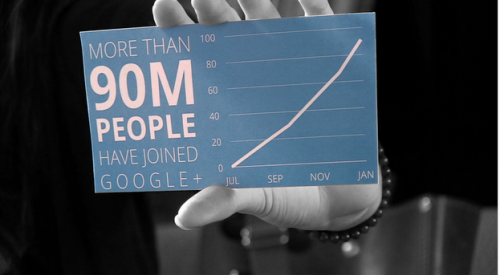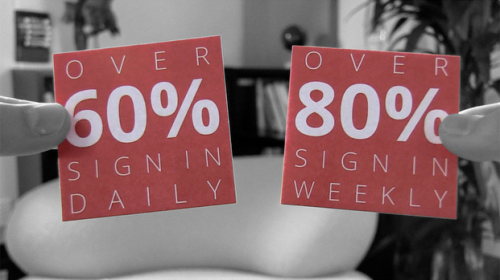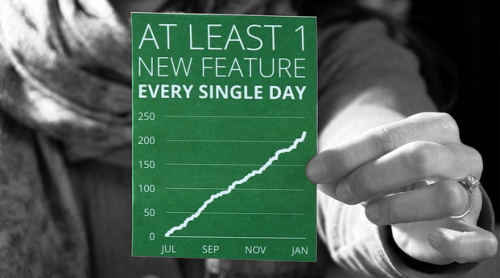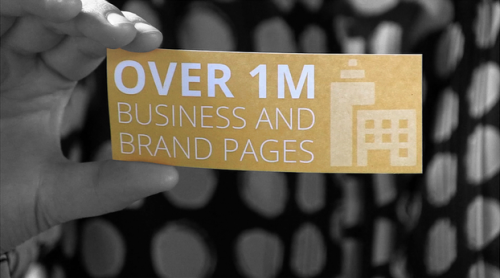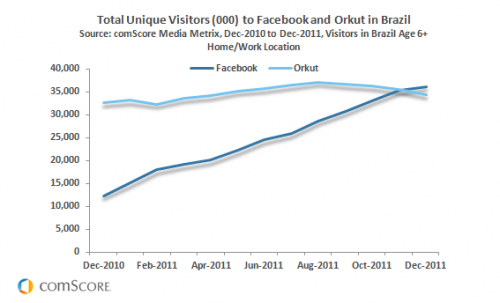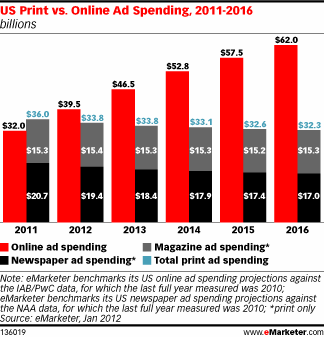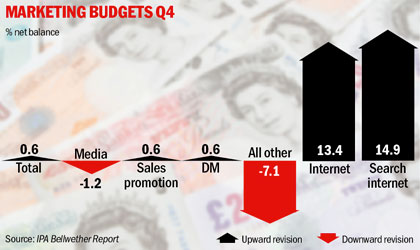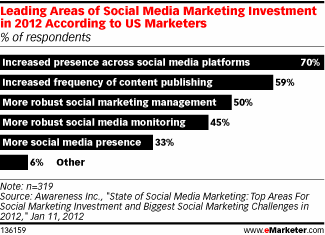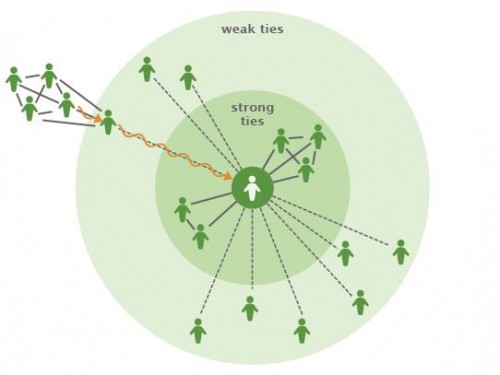We Are Social Asia Midweek MashUp #12
We’re back (and heavier) from the CNY festivities, and will resume our regular Tuesday TuneUp next week. In the meantime, here’s our Midweek MashUp!
Spam ‘retweets’ on Sina Weibo
A report from HP Labs’ Social Computing Research claims that 49% of all ‘retweets’ on Chinese microblogging service Sina Weibo are from fraudulent accounts. In addition, these automated fake users account for about 32% of total weibos. As a result, what appears to be trending on Sina Weibo is in fact skewed by these spam ‘retweets’, which contributes to what HP terms ‘artificial inflation’. It remains to be seen whether the implementation of real-name identities for all microblogging accounts in China will help to ease the occurrence of these spam ‘retweets’ through the reduction of fake accounts.
Sina Weibo’s incredible record over Chinese New Year
Sina Weibo recorded some incredible statistics in the first minute of Chinese New Year, with an average of 32,212 weibos per second, with 481,207 messages sent during the first minute of Chinese New Year alone. This number beats Twitter’s tweets per second record, which stands at 25,088. Furthermore, the volume of messages sent this Chinese New Year is three times higher than that of last year, and illustrates the tremendous growth that Sina Weibo has had this past year.
India’s Prime Minister joins Twitter
India’s Prime Minister Dr. Manmohan Singh is now on Twitter under the Twitter handle @PMOIndia in a bid to reach out to younger audiences and better communicate key announcements and news from the Prime Minister’s office, as well as his official trips and activities. Even though the Prime Minister himself will not be handling the account personally, he has already garnered 16,366 followers in the span of 2 days. Perhaps Singapore’s Prime Minister Lee should follow suit.
1 million milestone for Yahoo Box! in Japan
Yahoo’s new online storage service Yahoo Box! has reached 1 million users in Japan since its launch in October 2011. Similar to Dropbox and other web-based services that store information ‘in the cloud’, Yahoo Box! offers 5GB of free storage space to Yahoo Japan ID users. Notably, 51% of Yahoo Box! users are paying customers. Subscriptions start from 300 Yen or S$4.95 per month for 1,000GB of storage space. Yahoo Box! is most commonly used to store images, which make up 65.4% of items stored, while general documents take up 8.2%, music 3.4% and videos 0.7%. It’ll be interesting to see how Yahoo Box! fares against Dropbox and local Japanese search giant Naver’s similar offering, which provides 30GB of storage space free.
Google+ hits 90M users
As we’ve previously mentioned on our 5 Friday Facts #11, in Google+ is racking up its numbers with Larry Page unveiling a host of impressive stats:
Now when users start typing a hashtag, auto-complete suggestions will appear:
Users can now record and share videos straight from their webcams. Been posting nothing but photos of your cat? Meme-ify them instantly on Google+. We can’t even imagine the number of animal photos that are going to live on the Internet after this.
But the biggest new feature lets users post directly from Google search results to Google+. Searching for your favourite team might leads to news about, say, Thierry Henry, and then you can share this directly to your Circles.
Google will start invading your privacy, and there’s no opt-out option
Following the series of new features and additions it has introduced to its products, Google is planning to follow the activities of users of its suite of products and related sites, such as Gmail, its search engine, and YouTube. Only Google Wallet, its Chrome browser, and Google Books are not included. No doubt, Google has already been collecting information of its users, but soon it will combine data across its various websites to better target specific profiles for related ads. What is most frightening is that consumers will not be able to opt-out of this initiative, which will be effective from March 1.
Facebook becomes the premier social network in Brazil
Earlier this week comScore released results showing Facebook surpassed Google’s Orkut in December, becoming the largest social networking destination in Brazil for the first time. In the past year Facebook tripled its audience in the region, but even more impressively increased user engagement, from an average of 37 minutes spent on the site to 5 hours. It remains to be seen whether Facebook can replicate this success and capture the lead in other markets where it doesn’t lead such as Japan, Vietnam and South Korea.
US online ad spend to grow to almost $40 billion
Online spending on ads in America will grow 23.3% to $39.5 billion in 2012 as the internet proves its worth to advertisers in a tough economic climate.
Fast growth has seen online pull ahead of some traditional media and this year US online ad spending will exceed the total spent on print magazines and newspapers for the first time, at $39.5 billion vs. $33.8 billion. This is the sort of thing that a faux-savant would described as ‘a seminal moment’.
UK marketers also shift spend to digital as general confidence falls
Similarly in the UK, there’s been a distinct shift away from investment in traditional media campaigns towards digital channels: investment in internet advertising and search rose 13.4% and 14.9% respectively in the final quarter of 2011, with more traditional means of advertising losing spend.
31% of ad impressions are never even seen
Online will still need to continue to prove its worth, as comScore last week produced research that claimed over a third of ad impressions on the web are never even seen.
Working with 12 “national premium brands” in the US, including Chrysler, Ford and Kellogg’s, the report found that in many cases, ads are delivered but not in-view or on target and therefore never have a chance to make an impact.
Where users go, marketers will follow…
Nonetheless, with social media sites beyond Facebook, Twitter and LinkedIn seeing significant boosts in usage, both in the US and elsewhere in the world, it is only natural that marketers plan to capitalise on this in 2012:
Rethinking information diversity in networks – the power of weak ties
New research from Facebook appears to validate the use of social networks in understanding the spread of information first popularised by economic sociologist Mark Granovetter, as well as discrediting popular notions of the web as an ‘echo chamber’ where web personalisation algorithms like Facebook’s News Feed force us to consume an ever more dangerously narrow range of news.
In his seminal 1973 paper, The Strength of Weak Ties, Granovetter found that, surprisingly, people are more likely to acquire jobs that they learnt about through individuals they interact with infrequently rather than their close personal contacts.
In a scale unheard of in academic sociological studies, the Facebook study observed nearly 1.2 billion instances in which someone was or was not presented with a certain link. The results confirmed the power of weak ties and highlighted how weak ties “are indispensible” to your network as they have access to different websites that you’re not necessarily visiting.
Some Facebook Pages only reach 17% of fans
Since all the changes in late 2011 it’s clear Facebook has made it tougher for community managers. Teaming up with EdgeRank Checker to examine what was going on, AllFacebook found that (in a review of 4,000 Facebook pages) the average page post is only reaching 17 percent of the Page’s fans.
The advent of the ticker and various apps’ inclusion – like The Guardian and Spotify’s – has clearly had an impact, but it’s worth emphasising that this is the number for an average Page; put simply, effective community management, based on statistical insights and a thorough understanding of how EdgeRank works, can overcome this.
Introducing new apps for Timeline
60 new apps were launched for Timeline last week, with sites such as Foodily, Ticketmaster and Pinterest teaming up with Facebook to encourage users to “enhance your Timeline with apps that help you tell your story”. The idea behind it is to share ‘your favourite activities’ with your friends.
Ticketmaster + Spotify = concert-goers paradise
Welcome to the world of social music through Facebook Timeline. A new app from Ticketmaster will recommend gigs based on your listening habits and history. Yet another reason to delete those tunes you’re a bit embarrassed about, lest you tell all of Facebook that you’re going to (another) Justin Bieber concert.
What you want from Auto Trader
A new app on Facebook Timeline from Auto Trader gives users the option to show friends cars they would like to own. Interestingly, rather than the traditional ‘like’ button, it will include a ‘want’ button instead.
Twitter seeing 3 to 5 percent engagement on Promoted Tweets and Trends
Defining engagement as a “click, retweet, reply, or favorite” Twitter have declared their Promoted Products — including Promoted Tweets, Accounts and Trends — a success, with advertisers seeing 3-5% engagement rates on campaigns. Twitter Chairman Jack Dorsey suggested that “advertisers are coming back… [the market] is proving that this is something people want to see more of”. Or so he thinks.
McDonald’s lose control of a hashtag
However, McDonalds show that buying a promoted trend is not necessarily a good thing, as their McDstories campaign spun rapidly out of control amid a McFlurry of negative tweets. A big McFail.
What’s cooking at Foursquare?
Foodies rejoice: mobile check-in app Foursquare has added restaurant menus with prices. So far, they are only available for big chain restaurants in the US, including Dunkin’ Donuts, Panera Bread, Starbucks and Applebee’s, and only on certain platforms (not on iPhone). This comes on the heels of the improved “Explore” tab, which lets users find the hidden gems near them based on tips from other users and begs the question: will Foursquare take over Yelp as the top grub finder for foodophiles?
Tumblr soars past 15 billion pageviews a month
Micro-blogging site Tumblr continues to produce impressive numbers, with it now accounting for over 15 billion pageviews a month. The half-blog, half-Twitter hybrid owes its continuing success to making sharing effortlessly easy. Just 10% of the content on Tumblr is original, but the average post will be reblogged about 9 times.
LiveJournal wants to live again in the U.S.
Americans had nearly written off LiveJournal as nostalgia of the Noughties, but the site is trying to make a comeback by attracting users to tight-knit groups around specific subjects. It doesn’t hurt that George R.R. Martin, the author of the popular ‘Game of Thrones’ programme, writes avidly on his blog there.
Obama to host a live interview on Google+
American President Barack Obama will give his first ever completely virtual interview from the White House – answering questions on YouTube and hosting a Google+ hangout – after his State of the Union address. Nice idea.
Just like The Dude
Lionsgate is the latest studio to rent films through Facebook and has made its latest film ‘Abduction’ more interactive. Pop-up boxes appear on screen with quotes or a 20-second grab and give viewers the option to post it on Facebook. If one of your friends watches the film later, he can see the comment you left at that point in the film. You can also ‘Like’ the products that your favourite characters are using. Watching ‘The Big Lebowski’? Then perhaps you’d like some Kahlua.
Brewing in the hive mind
Crowdsourcing is bubbling up in the beer world. Untappd (a beer check-in and recommendation service) now lets breweries claim their pages, allowing them to see which of their beers is the most popular and be in contact with their biggest fans. They’ve already picked up 150 breweries thus far, including Dogfish Head, Kona, Boston Beer and Tenth & Blake.
In the same vein, Sam Adams has developed a Facebook app so that fans can create a custom beer, which will be brewed next month. Fans can comment on categories such as colour, body and sweetness. Will the result be delicious or taste like a bad batch of home brew?
You’re in Stephen King’s story
Could your mug be on Stephen King’s next book? To celebrate his next book, the publisher has invited fans to upload their photo onto a Facebook app and revel in their few ‘pixels of fame’.
MINI fans the Facebook flames
Pyromaniacs will get a kick out of this: at the Brussels motor show, MINI launched a new competition so that when Facebook users like their page, it lights a Bunsen burner under a rope attached to a MINI Countryman which one lucky fan won. MINI are on fire at the moment.
Discover Berlin with Hugo Boss
For Berlin Fashion Week, Hugo Boss sponsored Foursquare specials on drinks and starter deals at trendy bars and restaurants around the city. The best boss around.
Katie Price isn’t herself
Most thought that when Katie Price tweeted about the Eurozone crisis and China’s GDP over the weekend, she wasn’t acting like her usual self. And as it turns out, she wasn’t – it was a cleverly played PR stunt from Snickers, who paid to take over her Twitter account.
Cadbury says a big thanks — bar none
To celebrate reaching 1 million Facebook fans, Cadbury built a giant thumbs up out of 1 million chocolate bars. Two days and three tones of chocolate later, fans were rewarded with the sight of the massive treat.
Magical mystery tour with Burton
A new competition from Burton Snowboards lets Facebook fans pack a ‘bag’ with three items of Burton kit, and then pick two friends to join them on their trip (destinations have not been disclosed), should they win one of the three grand prizes.
One Like, One Balloon
Heineken Brazil launched a simple yet effective campaign to get more ‘Likes’ on Facebook: turn a ‘Like’ into a balloon. Soon an empty office was filled with thousands of them, and fans could see updates of the disappearing office.
Bald Barbie coming?
After a popular social media campaign, Mattel are still unsure about producing a bald Barbie because of the possible ramifications. Two women whose daughters lost their hair after cancer treatment are adamant that ‘bald is beautiful’.
Hirsute We Are Social MD Robin Grant is uniquely qualified to give his opinion on the issue:
The obvious thing to do would be to release a limited edition bald Barbie with a percentage of the proceeds going to charity. Some companies have a fear of being seen to bow to consumer pressure – but corporate marketing teams must guard against being unchanging and monolithic.
